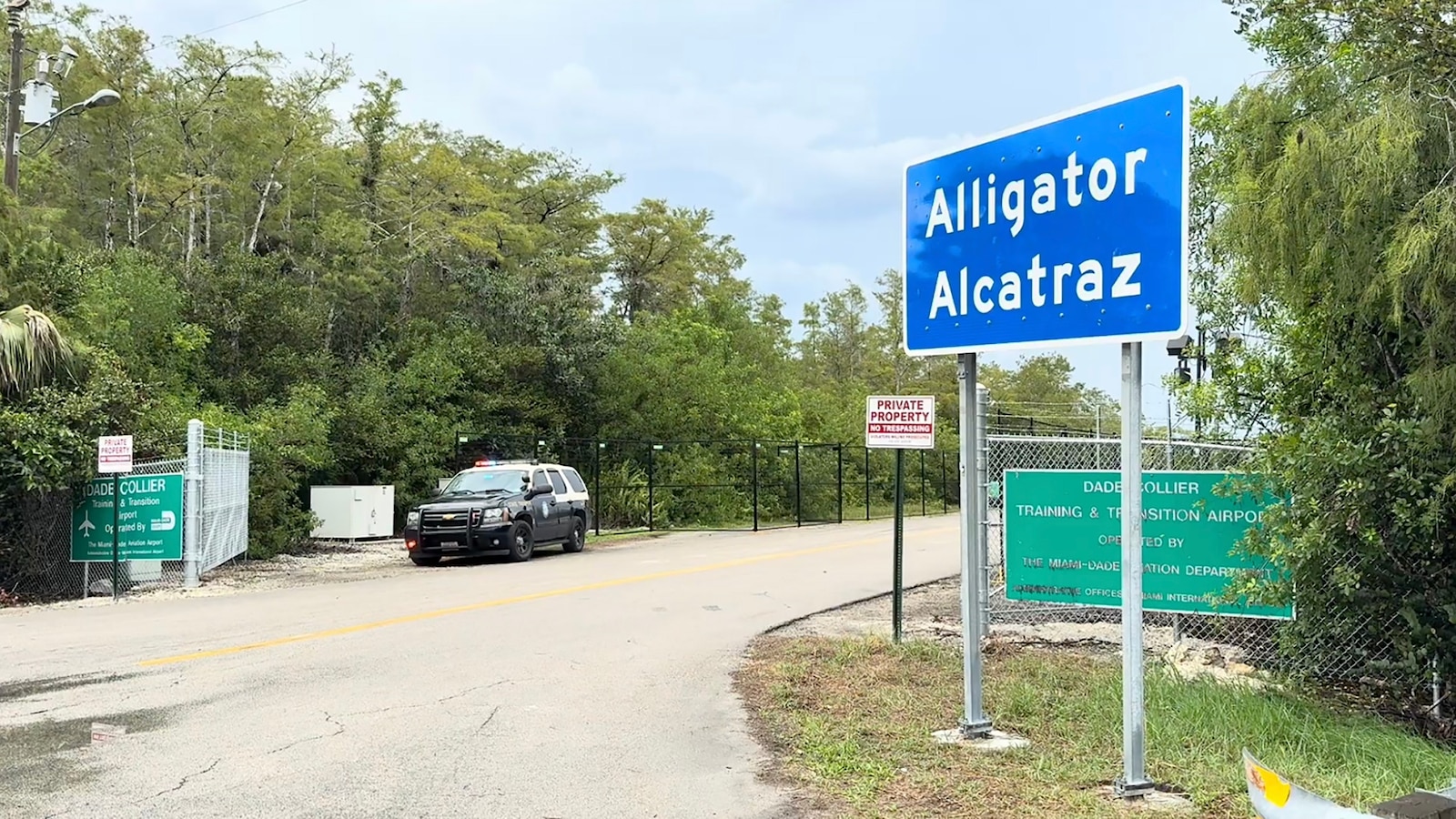Federal Judge Orders Halt to Transfers at ‘Alligator Alcatraz,’ Signaling Shutdown of Controversial Detention Center
Miami, FL — August 22, 2025 — In a significant ruling, U.S. District Judge Kathleen Williams issued a preliminary injunction on Thursday that prohibits the Trump administration and the state of Florida from transferring additional detainees to the immigrant detention facility known as “Alligator Alcatraz,” located in the Florida Everglades. The 82-page order also mandates the removal of temporary infrastructure, effectively signaling the wind-down of operations at the controversial site within 60 days.
The facility, constructed on a rarely used airstrip at the Dade-Collier Training and Transition Airport in Ochopee, Florida, was designed to house up to 3,000 detainees in temporary tents and chain-link enclosures. Dubbed “Alligator Alcatraz” by state officials, the center has faced intense scrutiny for its environmental impact and alleged inhumane conditions. The ruling stems from a lawsuit filed by environmental groups, including Friends of the Everglades and the Center for Biological Diversity, alongside the Miccosukee Tribe of Indians of Florida, who argued that the facility’s construction violated the National Environmental Policy Act (NEPA) by bypassing mandatory environmental reviews.
Judge Williams’ order prohibits new construction, including paving, fencing, or the installation of industrial lighting, and requires the removal of generators, sewage systems, and other waste receptacles within 60 days. While existing structures can remain for now, the ban on new detainees and infrastructure is expected to render the site uninhabitable, forcing a phased closure. “Plaintiffs have provided extensive evidence supporting their claims of significant ongoing and likely future environmental harms from the project,” Williams wrote, emphasizing the threat to the Everglades’ fragile ecosystem and endangered species like the Florida panther and wood stork.
The decision has been hailed as a victory by environmentalists and tribal advocates. “This brutal detention center was burning a hole in the fabric of life that supports our most iconic wetland,” said Eve Samples, executive director of Friends of the Everglades. “The judge’s order came just in time to stop it all from unraveling.” The Miccosukee Tribe, whose land and sacred sites are near the facility, also celebrated the ruling. “We will always stand up for our culture, our sovereignty, and for the Everglades,” said Chairman Talbert Cypress.
The facility, built in just weeks, has been a flashpoint for controversy since its opening on July 1, 2025, when President Donald Trump and Florida Governor Ron DeSantis toured the site, touting it as a model for immigration enforcement. Critics, including Democratic lawmakers, have condemned the facility’s conditions, alleging issues like mosquito infestations, non-functioning toilets, and spoiled food. A separate lawsuit addressing detainees’ legal rights, including access to counsel, was partially dismissed earlier this week but continues in another jurisdiction.
Florida officials, led by Governor DeSantis, have vowed to appeal the ruling to the Eleventh Circuit Court of Appeals. “Judge Williams’ order is wrong, and we will fight it,” said Jeremy Redfern, a spokesperson for Florida Attorney General James Uthmeier. “Alligator Alcatraz will remain operational, continuing to send illegal aliens back to where they came from.” Despite the state’s claims that the facility is state-run and thus exempt from federal environmental laws, Judge Williams found that the joint partnership between state and federal authorities necessitated NEPA compliance.
The ruling marks a high-profile use of environmental law to challenge immigration policy, with Williams noting that “every Florida governor, every Florida senator, and countless political figures” have pledged to protect the Everglades. She criticized the haste in constructing the facility without considering alternative locations, questioning, “Why the jetport in this area?”
As the legal battle continues, the order represents a significant setback for the Trump administration’s immigration enforcement efforts and DeSantis’ state-led initiatives. Environmentalists and tribal leaders hope the decision will set a precedent for prioritizing ecological and cultural preservation over rapid development. For now, the future of “Alligator Alcatraz” remains uncertain as the state prepares its appeal and the facility begins its mandated wind-down.
